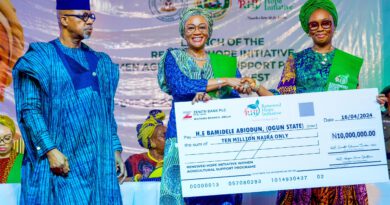Between Soft Palliatives and Bitter Pills of Reform
Reflection on Citizens Expectations, Difficult Policy Options, Reform Frustrations and Change Mitigation
•By Abdulwarees Solanke
As citizens and political leaders of many countries of the developing world including ours often advocate for and promote reform and change when seeking power, I am forced to launch a rhetoric in asking: Are we really prepared for genuine reform and change? My question in this reflection or whisper today is borne from a series of other questions I will be raising immediately. First, what aspect of our public life is not challenged? Secondly, which sector do we not complain about? Third, which institution of state, in our reckoning rates as perfect in its processes and services? Finally, which group of players or actors in the public sector gets our applause or pass mark in their dealings with citizens or the public they are paid to serve as public servants?
In virtually every country of the developing world, there is little or no aspect of public life that is not challenged or not begging for serious government intervention, even exorcism of certain endemic malaise that cheapen the human life or existence. So, in what is commonly denoted as dividends of democracy in those operating democracy as a system of government, there are great expectations from the citizenry on what their governments must do to assuage these crippling challenges they daily grapple with or what they endure as existential problems in terms of friendly policies, redeeming programmes and initiatives usually defined as palliatives, incentives or mitigation measures.
These challenges and issues, ironically in legion. From education to health, public transportation, housing, safety of life and property, summed together, the citizens just want a better quality of life. The citizens cry for change and quest for reform are in terms of pains of poverty, poor access to social infrastructure, ravaging unemployment, unequal opportunities for empowerment. deteriorating physical public infrastructural facilities, urban decay, environmental pollution and under-representation in the governance process in which they feel excluded in the decision making on issues that affect them directly.
They evidently are the dominant content of the mass and social media which are also often exaggerated or mischievously presented in many instances, thus promoting the phenomenon of fake news and hate speech that indeed fan violence and destruction, including loss of election and military takeover in many of these countries. Therefore, during seasons or cycles of election that political parties jostle for power, these realities of cause form the crux of campaign promises and pledges, party manifestoes reform agenda and commitments on improvement of public welfare by candidates seeking the electoral mandates of their constituents to various levels political representation or offices, from counsellors at ward levels to the presidency at the federal level. Nigeria is not exception in this culture of electioneering. Different appeasing slogans, appealing radio and television jingles and creative messages are abundantly crafted and produced to reach the hearts of the electorate either to sway them to vote in a particular direction, continue in office or return to power.
So, immediately after the elections, the citizens expect from the government they invested their franchise in in voting them to power some magic in the redemption of the electoral campaign promises and sharing or distribution of dividends of democracy as return on investment. This quest for dividends is understandable because election in these countries can be likened to a contract or a transaction between the led and the leaders. After all, what motivated them in the first instance to vote a particular party or candidate or in a particular direction is their faith that their fate of pain, misery and misfortune will come to an end in the new order that promises change and better life for all.
Also, their assumption is that governance is very simple and straight forward. Win election, be sworn in to power, give instruction, roll out measures promised during campaigns and act with dispatch to bid farewell to poverty. The ordinary citizen cannot appreciate the complexity of governance and reform process. They cannot understand what it entails to initiate public policies to really address those existential issues or tackle so many endemic structural challenges that confront government when deciding what to do to assure a provision or restoration of quality life.
Rationally, the path of reform is a very narrow and difficult one. It is a path encumbered by realities of pain and apathy of the citizens as well as lethargy, compromises, abuses, misconceptions and insincerity on the part of some agents and actors in the policy process. Also, because of certain political realities, there may be a semblance of lack of political will on the part of those expected to drive or support the reform process or assist its implementation. Certain social and economic realities and interests also render implementation of reform policies unattainable. Such interests may include of donors and lenders, multi-national corporations, international NGOs and powerful nations and the multilateral or global institutions like WTO, IMF and the World Bank whileexperience in some climes confirm that reform initiatives can suffer process fatigue, because, normally, the gains of reform are slow in coming, not immediately visible
Abdulwarees Solanke,
Deputy Director/Head of Department.
Strategic Planning and Corporate Development Voice Of Nigeria.



